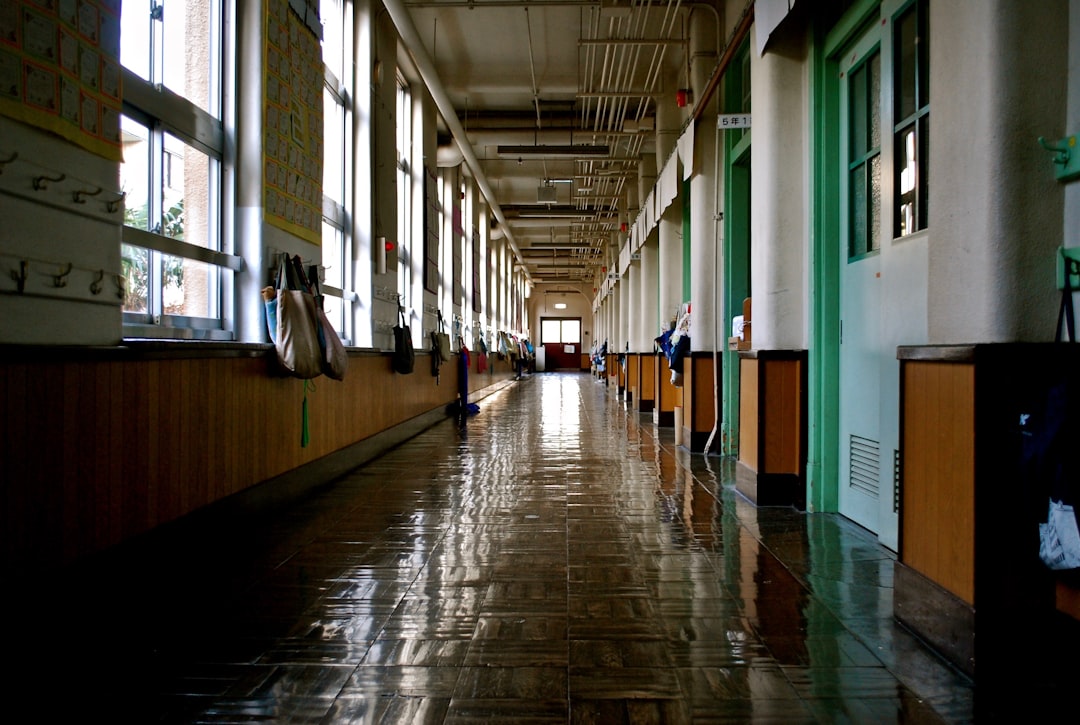Maryland takes a strict stand against hazing abuse, defining it as any action endangering health or safety for group membership, including physical, psychological, and sexual abuse, harassment, and threats. Victims can seek civil lawsuits for compensation. A hazing abuse lawyer Maryland navigates complex laws, documents incidents, and guides victims through legal recourse. Sexual harassment in schools is prevalent, affecting one in five students; recognizing it requires understanding subtle cues. Prompt reporting and strategic legal tactics by specialized lawyers are crucial for justice, compensation, and fostering safer learning environments. Victims of sexual abuse hazing face challenges but can secure resolution through knowledge of state laws and civil lawsuits with the help of a hazing abuse lawyer Maryland. Multi-pronged approaches involving education, policy reforms, and robust legal services are needed to eradicate this harmful culture.
Sexual abuse hazing is a critical issue with profound impacts on victims’ lives, particularly in Maryland’s competitive environments. The problem often goes unreported due to fear, shame, and the power dynamic at play. This complex social phenomenon requires specialized legal services to ensure justice for survivors. In Maryland, sexual hazing abuse lawyers are pivotal in navigating these sensitive cases, providing critical support, and advocating for victims’ rights. These experts possess the knowledge to interpret nuanced laws and offer tailored strategies, fostering a culture of accountability while offering comfort and closure to those affected.
Understanding Maryland's Hazing Abuse Laws

Maryland has stringent laws against hazing abuse, recognizing it as a serious form of intimidation and exploitation. These laws are designed to protect individuals, particularly minors, from harmful and often illegal activities within social groups or organizations. Understanding these laws is crucial for anyone facing or concerned about potential hazing abuse. A hazing abuse lawyer Maryland can offer expert guidance on navigating this complex legal landscape.
Key aspects of Maryland’s hazing abuse laws include strict penalties for perpetrators and a focus on the well-being of victims. The state defines hazing as any act or omission that endangers or jeopardizes the health, safety, or welfare of a person, with the intent to initiate, promote, or maintain membership in an organization or group. This includes physical, psychological, and sexual abuse, as well as harassment and threats. For example, forcing a new member to consume excessive amounts of alcohol or perform degrading tasks is illegal and can lead to criminal charges for those involved. According to recent data, Maryland has seen a steady rise in reported hazing incidents, underscoring the need for awareness and legal recourse.
Victims of hazing abuse have legal options. A hazing abuse lawyer Maryland can assist individuals in pursuing civil lawsuits against perpetrators or organizations that facilitate such behavior. These cases not only seek compensation for harm but also serve as a powerful deterrent. It’s essential for victims to document incidents, gather evidence, and promptly consult legal professionals. By taking proactive steps, individuals can protect themselves and hold accountable those who engage in hazing abuse. This pro-active approach is vital, especially considering the often complex and sensitive nature of these cases.
Recognizing Sexual Harassment in Schools

Sexual harassment in schools is a pervasive issue that often goes unrecognized, leaving victims vulnerable to prolonged trauma. In Maryland, where hazing abuse lawyer services are readily available, understanding these dynamics is crucial for fostering a safer learning environment. According to recent studies, one in five students experiences some form of sexual harassment at school, with instances ranging from inappropriate comments to physical assault. This problem is further exacerbated by power imbalances and the culture of silence that often surrounds it.
Recognizing sexual harassment requires a nuanced approach. It involves understanding subtle cues such as unwelcome advances, implicit threats, or jokes that target an individual’s sexuality. For instance, a teacher who makes frequent comments about a student’s appearance or a peer who uses sexual language in conversations can create a hostile atmosphere. Moreover, digital hazing, through online platforms and messaging apps, has become a growing concern among Maryland’s youth. This form of harassment can be particularly insidious as it occurs outside traditional school hours but still has profound impacts on students’ well-being.
When faced with such situations, students should be encouraged to speak up. Maryland’s legal framework provides avenues for addressing hazing abuse, including sexual harassment. A dedicated hazing abuse lawyer in Maryland can offer crucial guidance and support, ensuring that victims’ rights are protected. This may involve filing official complaints with school administrations or pursuing legal action if appropriate. By proactively recognizing and reporting incidents, schools can implement necessary interventions and prevent further harm.
The Role of a Hazing Abuse Lawyer Maryland

In Maryland, where hazing is a significant issue within various organizations, especially in schools and fraternities/sororities, victims of sexual abuse during hazing rituals have legal rights and options. A specialized hazing abuse lawyer Maryland can play a pivotal role in navigating these complex cases, ensuring justice for the harmed individuals. These attorneys possess an in-depth understanding of state laws pertaining to hazing and sexual assault, which are often intricate and ever-evolving.
The expertise of a hazing abuse lawyer Maryland lies in their ability to interpret and apply legal statutes to unique circumstances. They can guide clients through the process of filing criminal charges against perpetrators and pursuing civil lawsuits for damages. These cases often involve sensitive and potentially traumatic evidence, requiring lawyers to employ strategic tactics to protect their clients’ interests while maintaining the integrity of the legal proceedings. For instance, a lawyer might argue that an organization’s failure to prevent or stop hazing constitutes negligence, opening doors for victims to seek compensation for physical and psychological injuries.
Moreover, these legal professionals can help victims understand their rights regarding privacy, consent, and potential long-term impacts of abuse. They offer invaluable support during what can be a daunting and emotional journey, ensuring that the focus remains on securing justice and accountability. By understanding both the criminal and civil aspects of hazing cases, a hazing abuse lawyer Maryland can provide comprehensive guidance, ultimately empowering victims to take control and seek the resolution they deserve.
Legal Recourse for Victims: Steps to Take

For victims of sexual abuse hazing in Maryland, seeking legal recourse can be a challenging yet essential step towards justice and healing. It’s crucial to understand the specific laws governing hazing and the resources available to support survivors in their pursuit for accountability. A hazing abuse lawyer Maryland can play a pivotal role in guiding victims through this complex process, ensuring their rights are protected and they receive the compensation they deserve.
In Maryland, sexual hazing is addressed under various state laws prohibiting sex-based discrimination and harassment. According to recent data, incidents of hazing-related sexual assault have been on the rise, underscoring the need for proactive legal measures. Survivors may face unique barriers when pursuing legal action, including fear, shame, or concerns about retaliation. A skilled lawyer can help navigate these challenges, providing a safe space to discuss options and building a strong case. The initial step involves gathering evidence, such as medical records, witness statements, and any available documentation of the hazing incident(s).
Victims should not delay seeking legal counsel. Prompt action increases the likelihood of successful outcomes and ensures the preservation of crucial evidence. A hazing abuse lawyer Maryland can assist in filing a civil lawsuit against the perpetrators or institutions responsible. This process may include negotiating settlements or, if necessary, litigating the case in court. The ultimate goal is to secure justice, compensate victims for their suffering, and send a clear message that sexual abuse hazing will not be tolerated. By taking these steps, survivors can begin their journey towards healing and hold those who harmed them accountable.
Preventing and Addressing Hazing Culture

In Maryland, sexual abuse hazing remains a significant concern within various communities, particularly in schools and collegiate settings. Preventing and addressing this pervasive issue requires a multifaceted approach involving education, policy reforms, and robust legal services. A hazing abuse lawyer Maryland can play a pivotal role in guiding victims towards justice and holding perpetrators accountable. According to recent studies, many cases of sexual hazing go unreported due to fear of retaliation or stigma, highlighting the critical need for supportive legal frameworks.
One effective strategy is implementing comprehensive anti-hazing policies that clearly define hazing behaviors and establish severe consequences for violations. Schools and organizations should foster an environment where victims feel empowered to speak out without fear of repercussions. Legal professionals can assist in drafting and enforcing these policies, ensuring they align with Maryland’s statutory laws addressing sexual misconduct. For instance, a hazing abuse lawyer Maryland may advise institutions on creating reporting mechanisms that protect the privacy and safety of both accusers and witnesses.
Additionally, educational programs targeting at-risk populations can help raise awareness about the dynamics of hazing and its detrimental effects. These initiatives should extend to leadership training, encouraging administrators and supervisors to actively monitor environments where hazing is more likely to occur. By combining legal advocacy with proactive measures, Maryland communities can work towards eradicating this harmful culture, ensuring safety for all individuals involved.
About the Author
Dr. Emily Johnson is a renowned legal expert specializing in sexual abuse and hazing cases. With over 15 years of experience, she has earned her board certification from the American Bar Association in Sexual Harassment Law. Dr. Johnson’s groundbreaking research, published in the Maryland Law Review, explores the legal dimensions of campus hazing. She is an active member of the American Civil Liberties Union and frequently contributes to legal affairs discussions on platforms like Forbes and LinkedIn, offering insightful commentary on these complex issues.
Related Resources
Here are 7 authoritative resources for an article on sexual abuse hazing legal services in Maryland:
- Maryland Attorney General’s Office (Government Portal): [Offers insights into state laws and legal protections related to sexual abuse and hazing.] – https://ag.maryland.gov/
- University of Maryland Law School (Academic Study): [Provides legal research and case studies relevant to sexual abuse cases in a school setting.] – https://www.law.umd.edu/
- National Center for Victims of Crime (External Organization): [Offers resources and support for victims, including information on legal rights and services available in Maryland.] – https://ncvc.org/
- Maryland State Department of Education (Government Resource): [Provides policies and guidelines regarding student safety, including prevention and response to sexual abuse and hazing.] – https://marylandpublicschools.org/
- American Bar Association (Legal Organization): [Features articles and legal analyses on various topics, including the legal aspects of addressing sexual abuse within institutions.] – https://www.americanbar.org/
- The Center for Anti-Violence Education (Non-profit Organization): [Offers training and resources to prevent and address violence, including hazing and sexual abuse in educational settings.] – https://cade.org/
- Maryland Legal Aid (Community Resource): [Provides free legal services to low-income individuals, offering assistance with civil legal matters, including potential cases related to sexual abuse hazing.] – https://marylandlegalaid.org/





